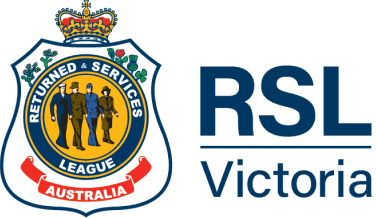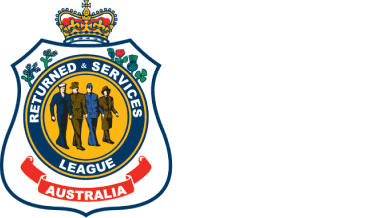The following story contains information relating to mental health and suicidal ideation. If you require any urgent support or assistance around this topic, please reach out to Open Arms via 1800 011 046 or call 000.
Photography: James McPherson
When the doctor said, “You can’t work again,” Stuart Chandler's world crumbled.
As the main provider for his wife Jenean and their three children, Stuart was forced into early retirement at the age of just 54.
Jenean remembers hearing those words and describes the moment as “an absolute nightmare.”
What followed was a long and difficult journey of rehabilitation, protracted compensation claims, financial hardship and poor mental health.
Active service life
Back in 1982, Stuart enlisted with the Royal Australian Navy, aged 17 and halfway through year 11. “When I got there and started the training it was scary to be honest, because what they do is, they break you so they can remould you.”
Part of his training took place at HMAS Albatross, where Stuart became an expert in packing life jackets, parachutes, life rafts and various safety equipment for aircraft. He recounts a conversation with an officer that drove home for him the level of responsibility involved in his role. He was asked if he could trust one of those packed parachutes with his life: “So, we went up in a Caribou, jumped out at 3000 feet with our chutes on to make sure they worked”.
After a period of rigorous training, Stuart spent four years at sea, posted first to HMAS Torrens and subsequently to HMAS Jervis Bay. He qualified to work in vertical transport, where he enjoyed the pace of work, the adrenalin and the unusual opportunities.
“I used to get a lot of joy flights in the helicopters and because we had the Sky Hawk aircraft, I got rides in the dual seat jet and that was magnificent because we were doing three or four G’s. The speed was unreal.”
Against the backdrop of his fast-paced and interesting service life, the stress of an old wrist injury, acquired during his time on Torrens, was continuing to plague him. The short-term, quick fixes used to get him back on the job meant the injury continued to plague him. An unfortunate reinjury of his wrist ultimately led to him being medically discharged in 1988, with the rank of Able Seaman.
Difficult times
Life after service saw Stuart move from job to job, including driving a truck, which helped him recover from his service-related drinking habit. In 2016, after multiple operations on his arm, doctors advised he could no longer work.
“I was told by a specialist that I couldn’t use my wrist anymore and... it wasn’t recommended to even drive,” Stuart said. “As I was driving heavy vehicles [for a job], basically, I couldn’t work.”
Stuart spiralled and his mental health deteriorated. In his words, he hit rock bottom. He attempted suicide multiple times and spent months in a psychiatric ward.
Stuart said, “My Advocate at the time, Bob Buchanan, who is now retired, put me on to my psychiatrist – he helped write up reports and organised for me to go to Ward 17 [psychiatric ward].”
Jenean remembers the struggles Stuart went through during this period.
“He’d be all right and then all of a sudden he would explode,” she recalls.
"He was just spiralling out of control. It was his anger and frustration...because he’d always been active and doing stuff."
Jeanean Chandler
Stuart recognises that his service years had wreaked havoc with his mental health, and the situation only grew worse when he was faced with unemployment.
A protracted compensation claim through the Department of Veterans’ Affairs left Stuart struggling to keep a roof over his family and put food on the table.
“There were times I was eating one meal every three days because I couldn’t afford to feed the whole family,” he said.
Support system
With nowhere else to turn, the RSL became like an extended family, providing Stuart and his family with assistance over the course of about two years.
The initial lifeline from his local RSL Sub-Branch in Cheltenham came via fortnightly food vouchers. It soon grew into something bigger when the Chandlers’ gas and electricity were threatened with disconnection. The Cheltenham RSL Sub-Branch once again lent a hand, ensuring supply was continued to the embattled family.
When Stuart started to fall behind on mortgage repayments, Bob Buchanan referred him to ANZAC House.
In real need of assistance but conditioned for most of his life to not ask for help, Stuart found the process confronting. “It was very embarrassing having to ask. I felt like I was begging for help. It was really horrible.”
Jeff Jackson, RSL Victoria’s Adviser-Military Advocacy Service Sustainability, assisted Stuart in his former position as Manager for Compensation and Welfare Support.
“Stuart's journey with RSL Victoria had been a long one. RSL Victoria's assistance and support kept the family afloat and together during some pretty tough times,” Jeff said.
RSL Victoria assisted Stuart with his mortgage, paying about 10 months’ worth of his annual repayments, totaling about $12,000.
Stuart remembers feeling overcome with emotion. “When I walked out of that office, I felt like I was floating, knowing that we were going to keep the house and we weren’t going to be homeless. I got into the car and cried because of all the help that was available.”
"If it wasn’t for the RSL, I wouldn’t be where I am now. I’d either be on the streets, or I’d be dead."
Stuart Chandler
Stuart is driven to use his newfound life and voice to educate others on the RSL’s work and the importance of raising money.
“If they didn’t raise the funds during the two annual Appeals [ANZAC and Poppy], they couldn’t help veterans like me with the lifelines, like food vouchers. If it wasn’t for the RSL, there’d be far less help for veterans.”

